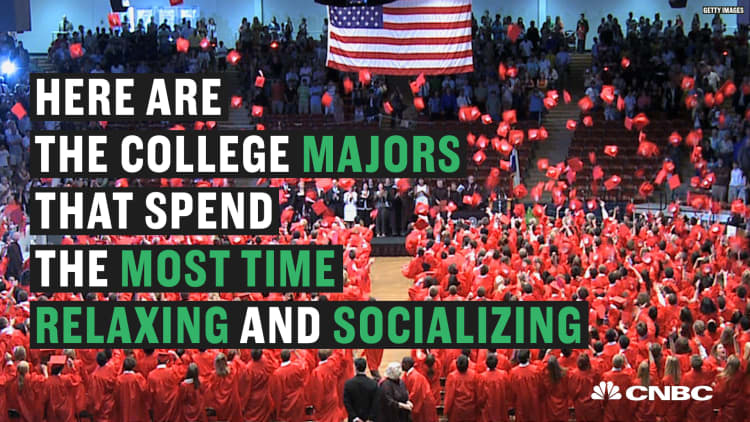Most American students depend on some kind of financial assistance to attend college.
According to the National Center for Education Statistics, 86 percent of college students receive aid, and in the aftermath of natural disasters like Hurricane Harvey and Hurricane Irene, affected students may need more financial assistance than they had expected.
Every student who was affected by either of these natural disasters should apply for financial aid, but what they may not realize is that once they've received their packages, they should ask for more.
The Free Application for Federal Student Aid (FAFSA), which allows millions of college students to apply for $120 billion worth of federal college aid, opened on October 1. According to NerdWallet, the high school class of 2017 missed out on roughly $2.3 billion in free federal grant money for college, simply by not applying for it.
"It takes four minutes," says Charlie Javice, founder and CEO of Frank, an online FAFSA platform. "You are probably going to get $10,000 to $30,000 worth of aid in your first year."
But the opportunity to earn more financial aid doesn't end once the FAFSA application is submitted, or even after a dream school offers assistance. Negotiating for more financial aid can help bridge the gap between what schools offer students and what families can actually afford.
Appealing FAFSA
"There is an appeal process," explains college admissions expert Danny Ruderman. "Once you submit the FAFSA, be sure to submit supplements or new addendums." While this appeal process is open to all, it could be especially beneficial to students who have had to endure natural disasters like Harvey and Irma.
The Department of Education allows families to appeal because, he says, "you can fill out the FAFSA in December, and by the time that your child is going [to college] the next fall, things can change."
The system is actually designed that way so that events like natural disasters can be properly accounted for. If your family has been affected by a natural disaster, be sure to submit supplements and addendums explaining the type of loss your family incurred and how it will impact your family's finances.

Appealing a school's aid package
Once students have received their FAFSA package as well as financial aid packages from an admitted school, they should still push for more, says Javice, who advises, "Always negotiate the aid."
She says that families who have recently been affected by a natural disaster have much to gain from submitting supplements, as well as negotiating directly with schools.
"To those who have been affected by Harvey and Irma, you should be negotiating your aid because of the natural disaster," she says. "You will likely be in a great position to negotiate and get free college aid because of the unfortunate events that happened."
Like this story? Like CNBC Make It on Facebook
Don't miss:
5 superstar athletes who went back to school
6 financial steps to take as soon as you start college
Students who work actually get better grades—but there's a catch



